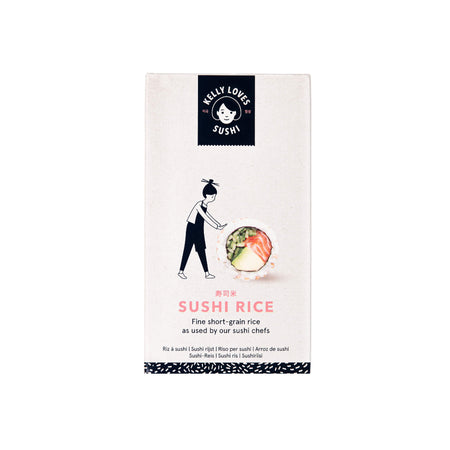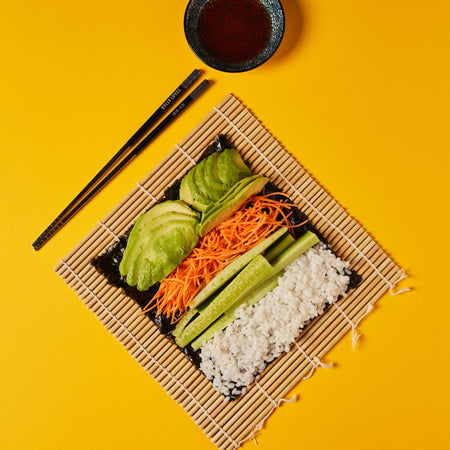Is sushi healthy? The health benefits of sushi

The Japanese diet is thought to be one of the healthiest in the world, contributing to the high Japanese life expectancy, which is far greater than it is in the western world. As a staple Japanese food, you can grab sushi on the go from a supermarket or in a restaurant.
When you compare sushi to other popular takeaway or dine-in foods, sushi stands out as being one of the healthiest. Sushi reflects the Japanese attention to detail: in both the appearance and the high-quality ingredients. Just look at the rainbow of colours on a plate of sushi…There are bright veggies (from green avocado to red and yellow peppers and crunchy orange carrot), glistening fish, nutritious nori, and wholesome egg — all wrapped up in modest, bite-sized portion sizes.
Adding different colours to your meals helps you to live a longer, healthier life. And whether you’re a vegan or a flexitarian, there is plenty of nutritional value to be found in sushi, as well as a delectable taste!
We explain the nutritional benefits of sushi, and provide some tips on how to choose the healthiest, most delicious sushi options when making sushi at home.
Nutritional facts about sushi
A source of protein
One of the wonderful things about making sushi at home is that it’s entirely customisable. So if you’re health-conscious, you can make sure that you include the foods that you need.
Sushi is packed with protein if you include fish or tofu, for instance. Protein will build and repair muscles and can also support your hair and nail growth. Sashimi is the ideal tasty protein hit. But as well as making up individual pieces of sushi, you can also create a high-protein sushi bowl.
To produce one, start with a bed of sushi rice and then add a carefully arranged layer of sliced fish or baked tofu and plenty of colourful vegetables (including protein-stuffed edamame beans) and served with low-salt soy sauce. Have some fun with the presentation — try fans or roses of avocado to impress your guests (after Googling a ‘how-to’ video!).
Rich in omega-3 fatty acids
Both the salmon and tuna in your sushi serve as excellent sources of omega-3 fatty acids, as well as other oily fish, such as mackerel. Omega-3 fatty acids are incredibly important for the body and the brain. They feed brain cells, encouraging regeneration, providing energy and improving concentration and memory. Studies have also found that people who eat seafood one to four times a week are less likely to die of heart disease. In Japan, fewer people have heart disease compared to the UK (we eat less oily fish in the UK).
Omega-3 fatty acids can also support your eye health, helping to prevent age-related vision loss (DHA is a structural component of your retinas and a type of omega-3). This super-charged omega-3 also supports skin health, as DHA is also part of your skin, managing oil production and preventing premature ageing. Omega-3 fatty acids EPA and DHA have also been found to significantly reduce blood pressure in those with high blood pressure.
Low levels of omega-3 fatty acids are linked to obstructive sleep apnea in adults and sleep problems in children. Lower levels of the hormone melatonin (which helps you fall asleep) are also linked to low levels of DHA.
And that’s not all. Omega-3 can prevent blood clots, fight inflammation and prevent artery plaque. Omega-3 has also been used as a natural way to treat mood disorders.
What a list! Even more reasons to eat more sushi during the week then…
Nutrient-rich seaweed sheets
Sheets of nori are used to roll sushi. This seaweed is a natural source of iodine — a critically important nutrient. Iodine's most important role is to ensure proper thyroid function. Iodine is used by the thyroid gland to make the thyroid hormones that control many things in the body, including growth and development. Humans cannot produce iodine, so it must be consumed (not that we need an excuse to eat more delicious nori-covered sushi or mouth-watering crispy nori snacks).
Nori also contains other nutrients, including: vitamins A, C, and E, iron, phosphorus, calcium, magnesium and thiamine. And it’s considered high-protein as 44% of its dry weight is protein.









